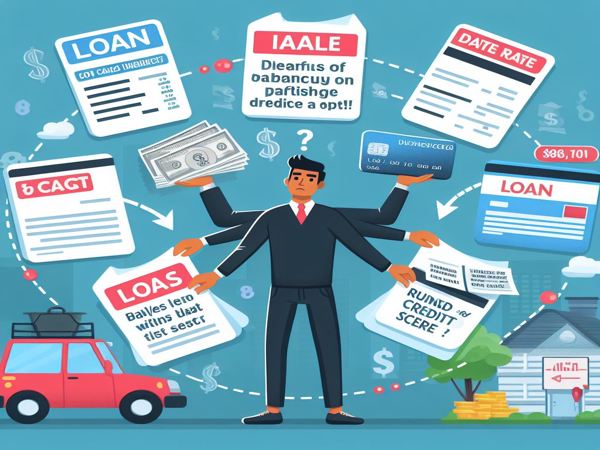In the pursuit of financial stability, many Nigerians may find themselves tempted by the quick relief promised by loan sharks. However, what happens if you don't pay a loan shark is a serious concern that demands attention. This article aims to shed light on the potential consequences of non-payment and provide insights into navigating this precarious situation in Nigeria.
Understanding Loan Shark Dynamics: Loan sharks, often unlicensed lenders, operate outside legal frameworks and resort to predatory practices. Their business model thrives on high-interest rates, aggressive debt collection methods, and a lack of transparency. When borrowers struggle to meet repayment obligations, the repercussions can be severe.
Immediate Consequences of Non-Payment: Loan sharks are notorious for their swift and harsh reactions to non-payment. Borrowers who miss payments may face incessant harassment, threatening messages, and intimidation tactics. These lenders often exploit fear as a tool to coerce repayment, making the borrower's life incredibly stressful.
Escalation to Violence and Threats: In extreme cases, loan sharks may escalate their tactics to physical violence or threats against the borrower and their loved ones. This creates an environment of fear and can lead individuals into a cycle of desperation, feeling trapped with no apparent way out.
Legal Implications for Loan Shark Borrowers: Contrary to the threats made by loan sharks, non-payment of loans to unlicensed lenders is not a criminal offense in Nigeria. Borrowers are protected by law, and any attempt by loan sharks to pursue legal action is baseless. Understanding this legal safeguard is crucial for borrowers facing harassment.
Taking Control: What to Do if You Can't Repay: If you find yourself unable to repay a loan shark, it's essential to take control of the situation. Report the harassment and threats to local authorities, such as the police or relevant regulatory bodies. Seeking legal advice can help in understanding your rights and establishing a defense against unscrupulous lenders.
Seeking Support from Consumer Protection Agencies: In Nigeria, the Federal Competition and Consumer Protection Commission (FCCPC) plays a vital role in safeguarding consumers. Reporting the activities of loan sharks to this agency can contribute to a broader effort to curb illegal lending practices and protect the rights of borrowers.
Exploring Debt Relief and Counseling Services: For individuals overwhelmed by debt, seeking assistance from reputable debt relief and counseling services is a proactive step. These organizations can provide guidance on managing debt, negotiating with creditors, and exploring viable solutions tailored to the Nigerian context.
Conclusion: Understanding the consequences of not paying a loan shark is the first step toward reclaiming control over your financial well-being. By reporting illegal practices, seeking legal advice, and exploring support from consumer protection agencies, Nigerians can break free from the cycle of harassment and intimidation perpetuated by loan sharks. Remember, knowledge is power, and protecting your rights is paramount on the journey to financial resilience.

.jpg)







